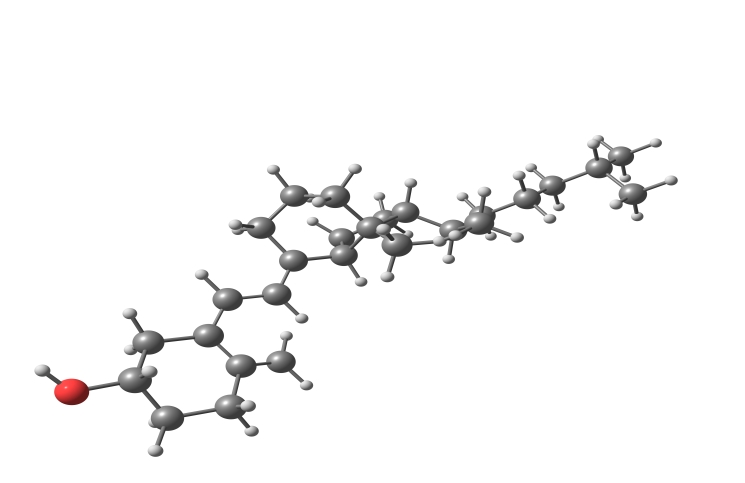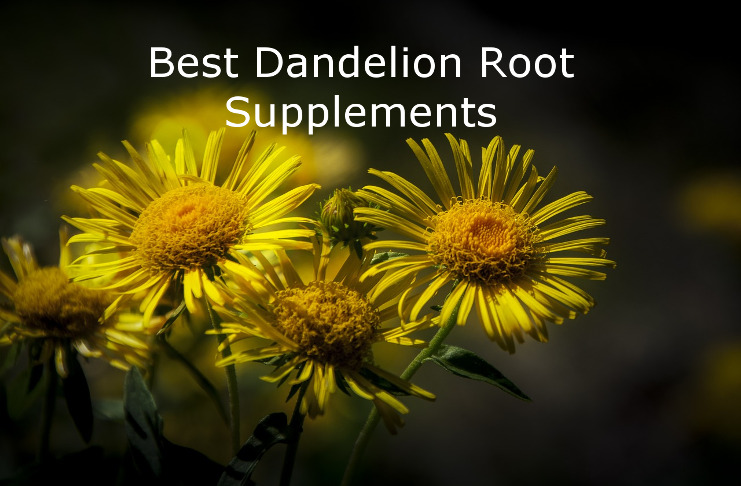Lecithin is a yellowy-brown fat that takes up a third of all the matter in our brain. This fact applies to all mammals actually. Lecithin holds choline, a vital neurotransmitter phospholipid that’s involved in thousands of processes in our body each and every day including concentration, dexterity, bodily movements – even urination and bowel movements! Let’s dive deeper to see if soy or sunflower lecithin is right for you.
- Great for weight loss and high cholesterol
- Perfect for those who are breastfeeding
- Non-GMO ingredients designed to aid clogged milk ducts
Daily Lecithin Requirements for Men and Women:
• Men: Require at least 600mg of Lecithin every day for proper brain, body and neurotransmitter function.
• Women: Require at least 500mg daily in order for the brain and body to stay alert and healthy.
Consuming more than the daily allotment isn’t dangerous at all. Making sure you get more than the daily required amounts can have far reaching benefits, particularly when it comes to improving the way your brain functions day to day – and long term.
Up to 1,200mg a day for both sexes is recommended for maximum benefit.
As you’ll soon learn, there are several benefits to consuming the right kind of lecithin supplement including heart health, anti aging, speedier healing of wounds, sleep quality, pregnancy health and more.
Soy Lecithin vs Sunflower Lecithin
Avoid products containing any soy – period!
At first it might seem like the better deal, as sunflower lecithin does cost a few dollars more per container. However, it’s important to understand why the sunflower variety costs more.
First, sunflowers in general cost more to produce and the yield from each plant is very little. The flowers take up more space and require more attention while they’re growing. Soy, on the other hand, costs very little to produce, requires no babysitting while it grows, and tons of soybeans can be produced in a relatively small area.
Second, lecithin can be extracted from soybeans quite cheaply, unfortunately by using a dangerous cancer-causing chemical called hexane. This is because soy lecithin is a common ingredient in chocolate bars, creams, and sauces, and manufacturers spare themselves the expense of cold-pressing (a safe way to extract lecithin) to make larger profits. Sunflower lecithin is made solely as a health supplement and is always cold-pressed, without the use of dangerous chemicals.
Keep reading to learn more!
10 Benefits of Consuming Sunflower Lecithin Supplements:
1. Healthier Brain
Sunflower lecithin is loaded with phospholipids. Namely, phosphatidylethanolamine and phosphatidylinositol, and phosphatidylcholine. Each are major ingredients the body uses to create, repair, and strengthen brain and nerve cells. People who suffer from degenerative brain disorders like Alzheimer’s, dementia, and Parkinson’s have shown significant improvements to their conditions when a daily dose of 35mg or more of sunflower lecithin is administered.
2. Cholesterol Lowering (Linoleic Acid)
Since lecithin is a fat emulsifier, it’s a vital component used by the body to remove excess fats from the bloodstream, including triglycerides and free cholesterol. Linoleic acid is the main ingredient found in sunflower lecithin that helps the liver to accomplish this task. The only other lecithin-containing plant that contains as much linoleic acid in it is olive oil. Soy lecithin contains very small amounts.
3. Liver Repair
When the liver gets over-loaded with excess lipids (fats), they start to accumulate inside the organ rather than being eliminated through the bowels as they’re supposed to. This condition is known as non-alcoholic fatty liver disease and it’s a growing epidemic that causes type-II diabetes, cirrhosis, and even liver cancer. The phospholipids in sunflower lecithin help to keep the liver clear of these excess fats and thus, work more efficiently.
4. Estrogen Free
Soy lecithin has been used for years an emulsifier for chocolates, baked goods, and butter. A couple of decades ago, science discovered that soy products contain phytoestrogens. These phytoestrogens cause men and women to produce estrogen which causes metabolic problems, sexual disfunction, early menopause, weight gain, breast growth (in men and women) and autoimmune disorders of the thyroid and adrenal glands. Learn more. Sunflower lecithin contains no phytoestrogens whatsoever.
5. Powerful Antioxidant
Sunflower lecithin contains one of nature’s most powerful antioxidants, called phosphatidylcholine. This antioxidant prevents free radicals from destroying the cells in our bodies. The oxidative damage done by free radicals causes premature aging and cancer throughout the body.
6. Faster Healing
The linoleic and other oleic acids in sunflower lecithin helps speed the release of inflammatory transmitters (cytokines) to the injured areas of our body. To achieve this benefit on external wounds, apply lecithin straight to the affected area.
7. Nervous System Health
The abundance of fatty acids found in sunflower lecithin help to strengthen nerve tissues and increase neurotransmitter activity. Nerve fibers are made up of myelin sheaths. These sheaths are like a complex information railroad that allows nerve impulses to travel to their destination. When they’re disrupted the nervous system is thrown out of balance.
8. Lowers Blood Pressure
As you’ve learned already, linoleic acid is an emulsifier that works to break down fats of all kinds in the body, including excess triglycerides and cholesterol in the blood. When levels of either are too high, they accumulate on the walls of our arteries causing arteriosclerosis (ie., thickening of the walls of the arteries) which leads to high blood pressure and eventually heart attacks and strokes.
9. Sleep Quality
Sunflower lecithin has more choline than almost any other plant or animal food source found in nature. Choline is converted to acetylcholine, a neurotransmitter, which many people around the world are deficient in because of their processed food diets.
10. Arthritis
Lecithin is the fatty, viscous fluid that sits between and lubricates every joint in our body. Without adequate intake of lecithin, joints become stiff which eventually leads to permanent joint problems and diseases like rheumatoid arthritis. Consuming 40 – 100mg of sunflower lecithin per day can help ease the symptoms of joint disease too.
- Great for weight loss and high cholesterol
- Perfect for those who are breastfeeding
- Non-GMO ingredients designed to aid clogged milk ducts
Important Note
It’s important to reiterate that soy lecithin products may seem tempting, and they will offer many of the same health benefits that the sunflower variety will. However, please do remember the dangers of consuming phytoestrogens, and that manufactures use hexane in soy products which has proven to cause cancer.
There’s no sense taking a health-boosting supplement if it destroys your health as much as it boosts it!
Sunflower lecithin costs a few bucks more, but it’s well worth it.






I feel joint improvement and good sleep. Last summer I went on blood pressure meds. I am starting to think next summer, I may be A OK to go off mrds.
great write up —any brands you recommend?
U mentioned that it contains Linoleic acid but does it also contain LINOLENIC ACID as well?
Recently introduced to this supplement so time will tell.
I am having trouble believing all negativity about soy products bringing on early menopause etc. (of course all procesed foods are harmful to our health)
In countries where high amounts of soy products are consumed – the women don’t go through the stress related with menopause such as hot flashes etc, in comparison to us women in the USA. I am not there yet, so not sure of how the symptoms feel, but I read a lot about it. I guess I’d like to be well informed for when I reach that stage.
Also other Asian countries have less cases of heart disease and early aging to name a few and they have a high soy consumption.
It’s difficult not to read every article produced expecting the author to somehow be bias towards the “other” products- to benefit their own information. Not saying all writers are bias… just makes me wonder and so I go on reading tons of info in the subject! It gets tiring lol
Just thought you might find this interesting:
Asian countries do NOT consume high levels of soy, despite what manufacturers of soy products want us to think here. On average, they consume about two tablespoons per day total of soy products. Americans get soy -and the worst kind, soy isolates- in just about every processed food they consume. Go to the supermarket and try to find a bread without soy in it. It’s pretty hard to do unless they carry health foods/organics. Look at processed/ready to eat type foods. Many have soy ingredients. Many processed dairy products contain soy. The list goes on and on. We already consume a lot more soy (and in its worst form) than Asians do. Now add the fact that soybeans are a heavily sprayed, GMO product. The only soy products I, as a woman, will eat, and only in small amounts, are steamed organic edamame, and fermented organic soy foods like tempeh. Adding it as a supplement or an oil is just too risky in my opinion.
I agree, plus high consumption of Soy can lead to Breast Cancer!!! Soy Lecithin is VERY bad for you!!! But manufacturers use it because it’s cheap. Very pleased to see that manufacturers are starting to remove Soybean Oil and Soy Lecithin from their ingredients but we have a long way to go.
Not sure about Tempah. I’ll have to research that. I’m surviving invasive doctoral breast cancer and I avoid Soy at all cost!!!!! My Warning to everyone, read the ingredients!!!!! STAY AWAY FROM SOY!!!!!!!
Very well said Ged.
Believe it! Soy is not fit for human consumption. The soy plant is extremely toxic. To wash away “some” of the toxins they use HEXANE, which is carcinogenic. Also, soy has anti-nutrients that can not be neutralized. On top of that…soy is a goiterin, which disrupts our endocrine system creating a haven for breast cancer, while giving males female hormones causing men to be more feminine. I grew up raising soy on our farm, it is cheap and vigorous. Back then we were told to grow soy beans because manufacturers wanted to push this crop due to heavy profits! Do not be fooled, soy is not food for humans or animals.
Does sunflower lecithin contain phosphatidylserine?
So far all the plant-based sources do not seem to have the fatty acid (PS).
How do I get lecithin
The two main ways to get Lecithin are:
1. Food
Natural food sources of Lecithin include: Seafood(salmon, atlantic cod, shrimp); Dairy and Eggs; Vegetables, Legumes,
Animal Liver, Chocolate, salad dressings, frozen desserts and baked goods.
2.Supplements
You can also get Lecithin by taking supplements. Supplements are excellent lecithin sources. You can buy them at any pharmacy, health food store (i.e. Whole Foods), grocery stores or online vitamin stores.
I just began taking sunflower lecithin a few days ago; and I take it straight…right out of the bottle!
Yes, it’s gooey and doesn’t taste so well…but then I chase it with beet juice or orange juice. Is that alright to take it straight like that, or will my body have a challenge digesting it? Your guidance is much appreciated 🙂
RR
Sunflower lecithin has the most phosphatidylcholine (Brain healthy) and unlike soy lecithin which is often extracted through a toxic Hexane process, Sunflower lecithin is extracted with a safe cold-press. A bit more expensive but way more value with more and safer nutrients.
how many teaspoons or tablespoons give me the recommended 1200 mg of liquid sunflower lecithin?
0.21 teaspoons (just under 1/4)
I bought a sunflower lecithin powder and in the back it has a warning it say this product contains lead. I am not going to take it I will be returning back. I don’t understand
I agree. The soy that’s ubiquitous these days in just about any product is most probably the worst kind of soy, full of chemicals and GM at that. I personally don’t like the taste of it (as a supplement) so never bothered with it. Sunflower lecithin is not very palatable either but I usually mix it into my hot chocolate, which actually works well as the resulting drink has a very smooth texture.
As for Asians, as far as I know, the soy they consume is ALWAYS fermented. Miso, tempeh and tofu are all fermented soy products and these are actually supposed to have many health benefits. I once watched a documentary about Okinawa and the centenarians there. Their diet? Mostly vegetables along with seaweed and tofu!
What about the LEAD Warning on the current Now Sunflower Lecithin containers 12.145.18
Be aware – I contacted the NOW Brand regarding there Sunflower Lecithin. They could not tell me if there are pesticides sprayed on or near the sunflowers AND they DO USE HEXANE in their process. You really have to DIG nowadays to find something pure.